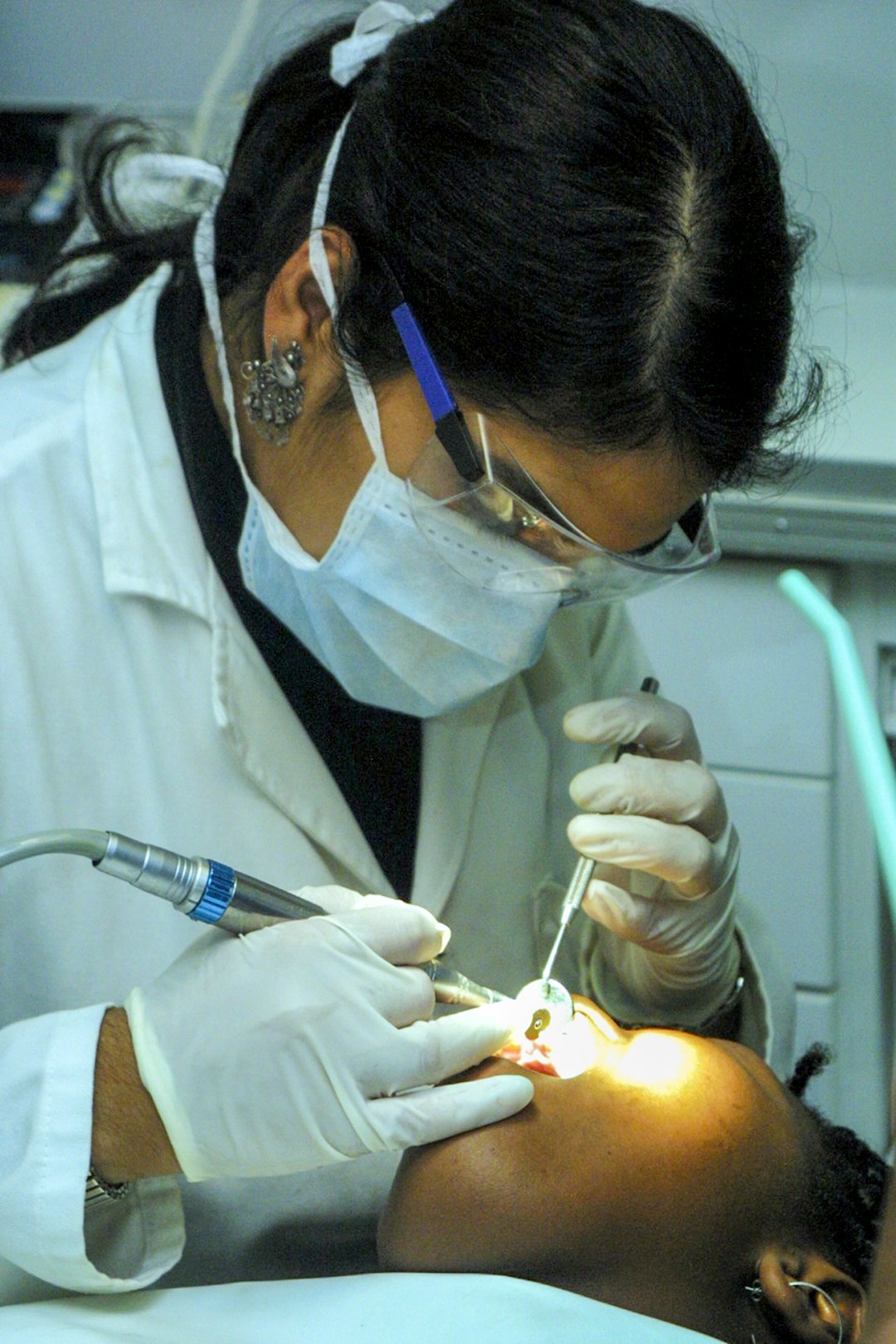Understanding Dental Implants: A Complete Guide to Tooth Replacement

Understanding Dental Implants: A Complete Guide to Tooth Replacement
Missing teeth can significantly impact your quality of life, affecting everything from your ability to eat and speak to your self-confidence and social interactions. Dental implants have revolutionized tooth replacement, offering a permanent solution that looks, feels, and functions like natural teeth. At Navarro Dental Care, we specialize in comprehensive dental implant treatments to help our patients regain their smiles and oral health.
What Are Dental Implants? The Modern Solution for Missing Teeth
Dental implants are artificial tooth roots made of biocompatible titanium that are surgically placed into your jawbone. They serve as a foundation for replacement teeth that look, feel, and function like natural teeth.
Unlike traditional bridges or dentures, dental implants:
- Fuse with your jawbone for exceptional stability
- Prevent bone loss that occurs when teeth are missing
- Restore full chewing power
- Provide a permanent solution that can last a lifetime with proper care
Types of Dental Implants: Finding the Right Solution for You
1. Endosteal Implants: The Most Common Type
Endosteal implants are the most commonly used type of dental implant:
- Placed directly into the jawbone
- Made of titanium cylinders or screws
- Can support single crowns, bridges, or full dentures
- Require sufficient bone height and width
- Healing time: 3-6 months for osseointegration
2. Subperiosteal Implants: Alternative for Limited Bone
Subperiosteal implants are placed under the gum but above the jawbone:
- Used when there isn’t enough healthy jawbone
- Metal framework rests on top of the bone
- Posts protrude through the gums to hold the prosthesis
- Less invasive surgical procedure
- Suitable for patients who can’t undergo bone grafting
3. Zygomatic Implants: For Severe Bone Loss
Zygomatic implants are an advanced option for patients with severe bone loss:
- Anchored in the cheekbone (zygoma) instead of the jawbone
- Can be placed without bone grafting
- Support for full upper dentures
- More complex surgical procedure
- Longer treatment timeline
The Dental Implant Process: Step-by-Step Journey
Phase 1: Initial Consultation and Planning
Your dental implant journey begins with a comprehensive evaluation:
- Complete oral examination and X-rays
- 3D imaging (CBCT scan) to assess bone quality and quantity
- Discussion of treatment options and expectations
- Creation of a personalized treatment plan
- Cost estimates and financing options
Phase 2: Surgical Placement
The surgical phase involves precise implant placement:
- Local anesthesia ensures comfort during the procedure
- Small incision in the gum to expose the bone
- Precise drilling to create the implant site
- Implant placement at the optimal depth and angle
- Closure of the surgical site
- Healing period of 3-6 months for osseointegration
Phase 3: Abutment and Crown Placement
Once healing is complete, the restorative phase begins:
- Second minor surgery to attach the abutment
- Healing period for gum tissues (1-2 weeks)
- Impressions taken for the final restoration
- Custom crown, bridge, or denture fabrication
- Final placement and adjustment for optimal fit
Benefits of Dental Implants: Why They’re Worth the Investment
Functional Benefits
Dental implants restore full dental function:
- Chewing Power: Up to 100% of natural bite force
- Speech: Natural speech patterns without slipping
- Stability: No movement or discomfort while eating
- Durability: With proper care, can last 20+ years
Health Benefits
Beyond aesthetics, implants protect your oral health:
- Bone Preservation: Prevents bone loss and facial collapse
- Adjacent Teeth Protection: No need to alter healthy teeth
- Gum Health: Easier to clean than bridges or dentures
- Overall Health: Links to better nutrition and digestion
Psychological Benefits
The confidence boost from dental implants is transformative:
- Self-Confidence: Smile without worry or embarrassment
- Social Comfort: Eat, speak, and laugh freely
- Quality of Life: Improved relationships and social activities
- Youthful Appearance: Maintains facial structure and prevents aging appearance
Dental Implant Costs: Understanding Your Investment
Factors Affecting Cost
Several factors influence the total cost of dental implants:
- Number of Implants: Single tooth vs. multiple teeth vs. full mouth
- Location: Front teeth vs. back teeth (back teeth require more complex procedures)
- Bone Quality: Need for bone grafting adds to the cost
- Type of Restoration: Crown, bridge, or denture
- Materials: Standard vs. premium materials
Average Cost Ranges
Typical costs for dental implant treatment:
- Single Tooth Implant: $3,000 - $6,000 (including implant, abutment, and crown)
- Multiple Teeth: $15,000 - $30,000 (depending on number of implants)
- Full Mouth Reconstruction: $60,000 - $150,000 (using All-on-4 or similar techniques)
- Bone Grafting: $500 - $3,000 (when needed)
Financing Options
Make dental implants affordable with these options:
- Dental Insurance: May cover portions of implant treatment
- CareCredit: Medical financing with promotional periods
- Payment Plans: In-house financing through your dental practice
- Health Savings Accounts: Use HSA/FSA funds for eligible procedures
Who Is a Candidate for Dental Implants? Suitability Assessment
Ideal Candidates
The best candidates for dental implants typically have:
- Good Overall Health: No uncontrolled medical conditions
- Healthy Gums: No active gum disease
- Adequate Bone: Sufficient bone volume and quality
- Commitment to Oral Hygiene: Willingness to maintain proper care
- Non-Smokers: Smoking can impair healing and success rates
Relative Contraindications
Some conditions may affect treatment suitability:
- Uncontrolled Diabetes: Can impair healing
- Active Cancer Treatment: May need to delay treatment
- Severe Osteoporosis: May affect bone integration
- Heavy Smoking: Significantly reduces success rates
Dental Implant Success Rates and Longevity
Success Statistics
Dental implants have excellent long-term success rates:
- Overall Success Rate: 95-98% for properly placed implants
- Lower Jaw Implants: 97% success rate
- Upper Jaw Implants: 95% success rate
- With Bone Grafting: 90-95% success rate
Factors Affecting Longevity
The lifespan of dental implants depends on several factors:
- Oral Hygiene: Consistent daily care is crucial
- Regular Check-ups: Professional maintenance every 6 months
- Avoiding Trauma: Protecting implants from excessive force
- Lifestyle Choices: Avoiding smoking and excessive alcohol
Dental Implants vs. Traditional Tooth Replacement Options
Dental Implants vs. Bridges
Traditional Bridges:
- Require altering adjacent healthy teeth
- May need replacement every 10-15 years
- Can lead to bone loss beneath the bridge
- More affordable upfront cost
Dental Implants:
- Preserve adjacent teeth
- Can last 20+ years with proper care
- Prevent bone loss
- Higher initial investment but longer-term value
Dental Implants vs. Dentures
Traditional Dentures:
- Removable and can slip or move
- May cause discomfort and sore spots
- Require adhesives for stability
- Need periodic relining and replacement
Implant-Supported Dentures:
- Secure and stable like natural teeth
- Improved chewing ability (up to 90% of natural)
- No slipping or movement
- Preserve bone and facial structure
- Enhanced comfort and confidence
Caring for Dental Implants: Maintenance and Hygiene
Daily Care Routine
Maintain your implants with these daily habits:
- Brush Twice Daily: Use a soft-bristled toothbrush
- Floss Daily: Use special floss or interdental brushes
- Antimicrobial Mouthwash: Reduce bacteria around implants
- Regular Dental Visits: Professional cleanings every 6 months
Special Considerations
Implants require specific care:
- Water Flosser: Excellent for cleaning around implants
- Soft Toothbrush: Prevents scratching abutments
- Regular Check-ups: Monitor implant health and stability
- Night Guard: Protect against grinding if needed
Common Concerns and Myths About Dental Implants
Addressing Common Fears
Myth: Dental implants are painful
- Modern techniques and anesthesia make the procedure comfortable
- Most patients report less discomfort than expected
- Pain is typically mild and managed with over-the-counter medications
Myth: Dental implants are only for young people
- Age is not a limiting factor for most healthy adults
- Implants can be successful in patients in their 80s and 90s
- Overall health is more important than chronological age
Myth: Dental implants require extensive surgery
- Most implant procedures are routine and minimally invasive
- Advanced techniques like immediate placement reduce treatment time
- Recovery is typically faster than patients expect
Conclusion: Your Path to a Confident Smile
Dental implants represent the gold standard in tooth replacement, offering unparalleled benefits in function, aesthetics, and longevity. While they require an investment of time and resources, the results are transformative and can last a lifetime with proper care.
At Navarro Dental Care, we specialize in comprehensive implant dentistry, from single tooth replacement to full mouth reconstruction. Our experienced team uses the latest techniques and technology to ensure optimal results with minimal discomfort.
Don’t let missing teeth hold you back from the life you deserve. Contact us today to schedule a consultation and discover how dental implants can restore your smile, confidence, and quality of life.
Related Articles
- How to Choose the Right Dentist for Your Family
- The Importance of Regular Dental Hygiene
- Overcoming Dental Anxiety: A Patient’s Guide
FAQ Section
How long does the dental implant process take?
The complete process typically takes 3-6 months, including healing time for osseointegration. However, with advanced techniques like immediate placement, you may receive a temporary restoration on the same day as surgery.
Are dental implants covered by insurance?
Coverage varies by insurance provider and plan. Some dental insurance plans cover portions of implant treatment, especially if it’s medically necessary. Medical insurance may cover implants in cases of trauma or congenital defects. We can help you explore all available coverage options.
What is the success rate of dental implants?
Dental implants have a success rate of 95-98% when properly placed and maintained. Success depends on factors like oral hygiene, overall health, and avoiding habits like smoking that can affect healing.
Do dental implants hurt?
Most patients experience minimal discomfort during and after the procedure. Local anesthesia ensures comfort during surgery, and any post-operative discomfort is typically managed with over-the-counter pain medications. Many patients are surprised by how comfortable the process is.
Can I get dental implants if I have bone loss?
Yes, in many cases. If you have insufficient bone, we can perform bone grafting to build up the bone before placing implants. Advanced techniques like zygomatic implants may also be an option for patients with severe bone loss.
How do I care for dental implants?
Dental implants require the same care as natural teeth: brush twice daily, floss daily, use mouthwash, and visit your dentist regularly. Special care may include using a water flosser and avoiding chewing hard objects that could damage the restoration.
